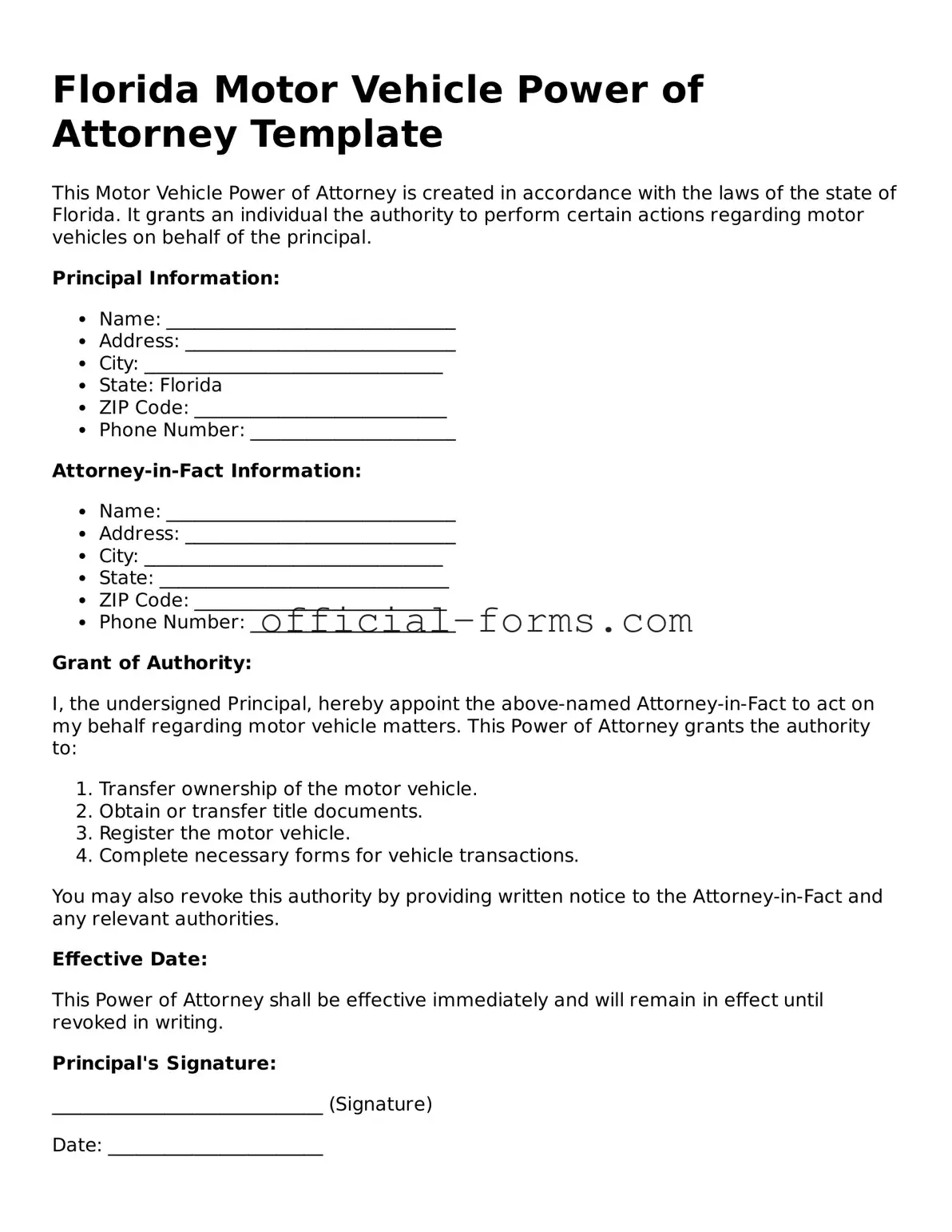Official Florida Motor Vehicle Power of Attorney Document
The Florida Motor Vehicle Power of Attorney form is a legal document that allows an individual to designate another person to act on their behalf regarding the ownership and transfer of a motor vehicle. This form is particularly useful when the vehicle owner cannot be present for the transaction. By granting this authority, the vehicle owner ensures that their interests are represented effectively and efficiently.
Open My Motor Vehicle Power of Attorney Now

Official Florida Motor Vehicle Power of Attorney Document
Open My Motor Vehicle Power of Attorney Now
Don’t leave your form incomplete
Finish Motor Vehicle Power of Attorney online quickly from start to download.
Open My Motor Vehicle Power of Attorney Now
or
➤ PDF
